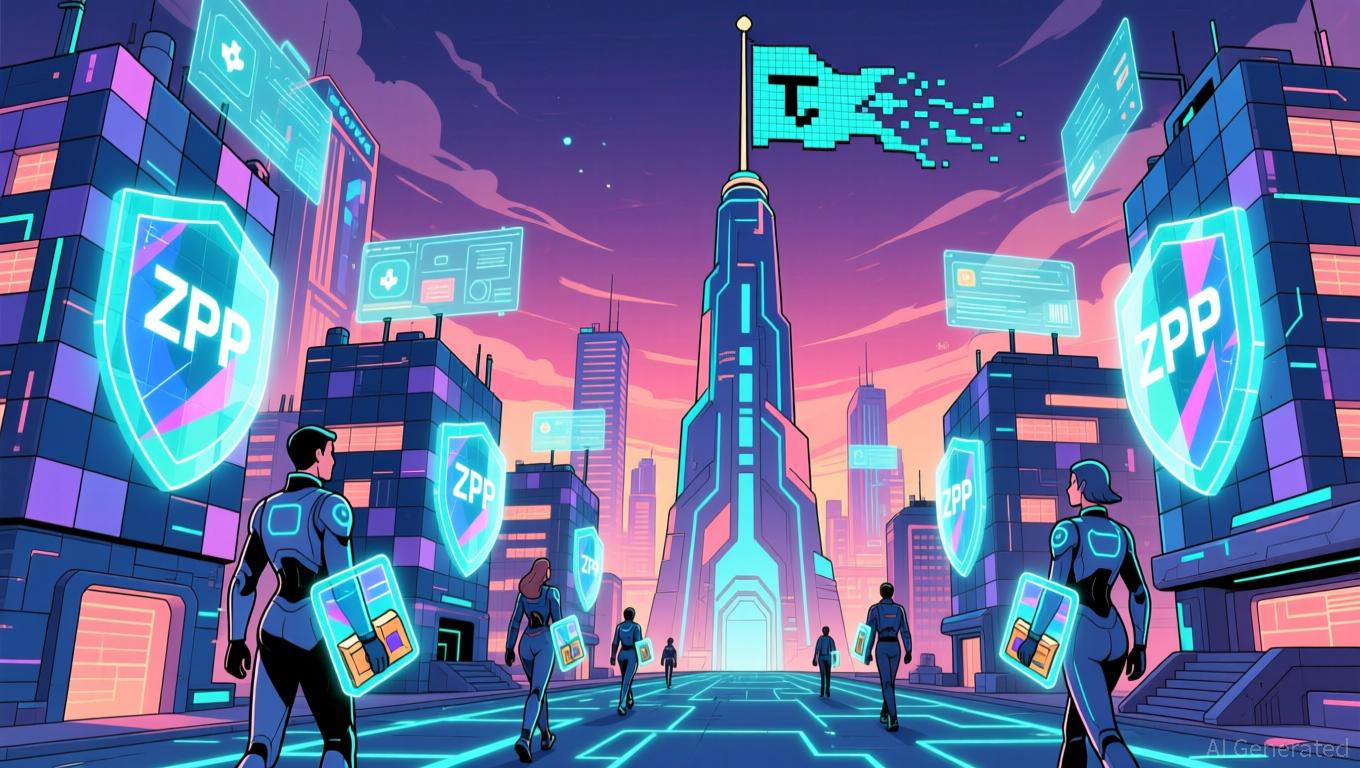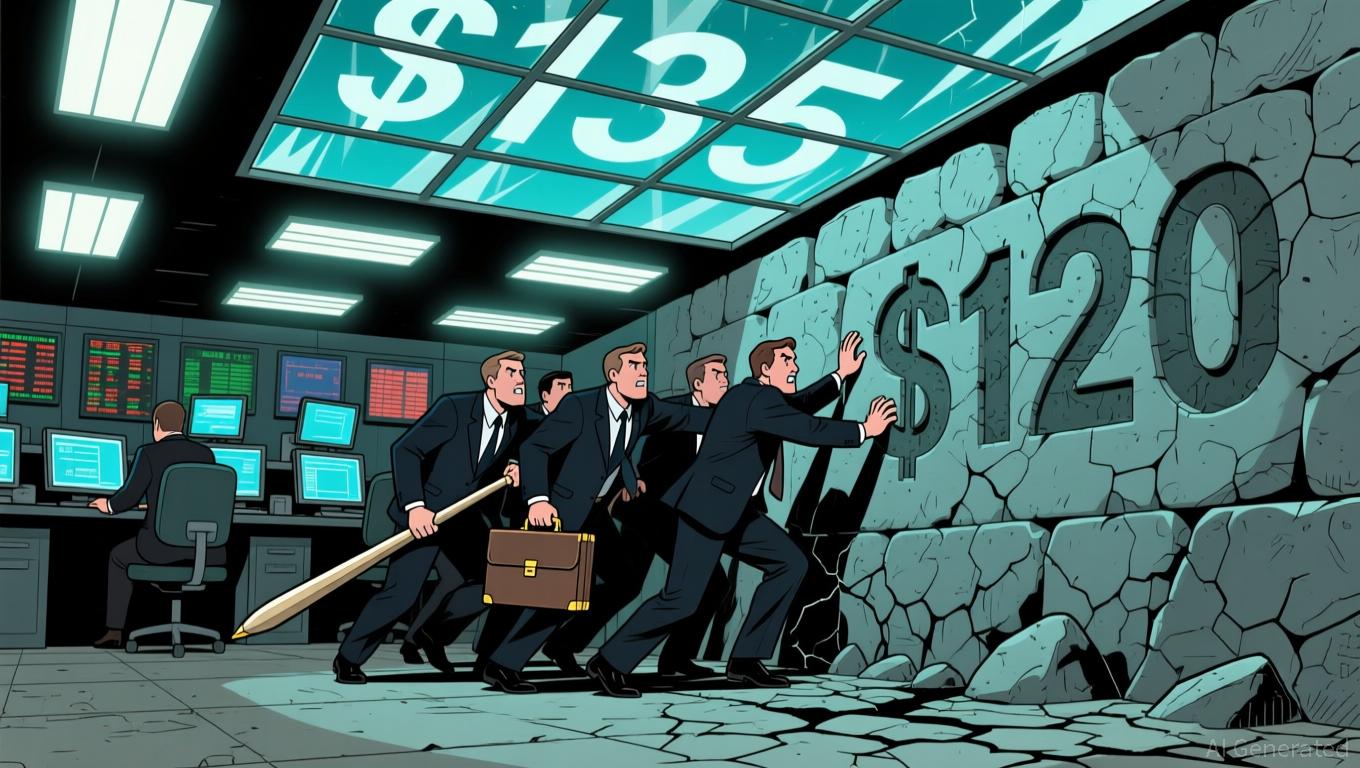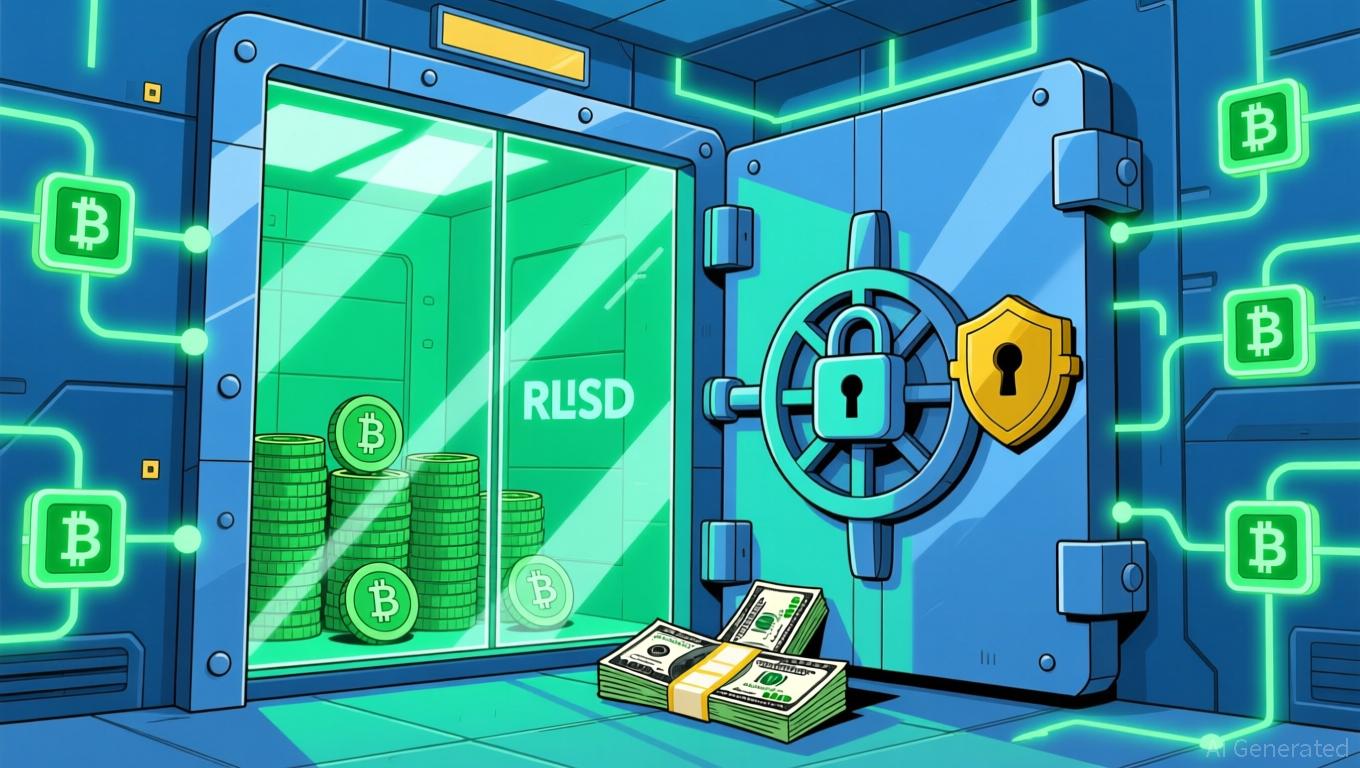Blockchain’s Evolving Foundations: Institutional Embrace Fueled by Governance and Privacy
- Tezos (XTZ) shows steady recovery via governance-driven upgrades, regaining $0.60 support amid growing institutional altcoin interest. - Zero Knowledge Proof (ZKP) gains traction with privacy-focused tech, $100M engineering investment, and transparent ICA token distribution. - Both projects highlight blockchain 3.0 priorities: Tezos emphasizes forkless governance adaptability, ZKP advances verifiable privacy infrastructure. - Analysts project XTZ reaching $1.20 by 2026 through RWA partnerships, while ZKP
Tezos (XTZ) has made a subtle comeback in market conversations, showing a gradual yet consistent rebound. This signals a cautious resurgence for the blockchain, which is recognized for its self-amending protocol and on-chain governance. The network has found support around the $0.60 mark, suggesting that confidence in governance-centric blockchains is returning as institutional interest in alternative cryptocurrencies increases
Tezos: A Comeback Driven by Governance
Tezos’s revival is anchored in its fundamental advantages. Its on-chain governance system enables smooth protocol enhancements without the need for disruptive hard forks, helping it maintain technological relevance even as it faces competition from newer Layer 1 networks such as
The baseline scenario expects a gradual increase to $1.00–$1.50 as Tezos benefits from the next wave in the altcoin market, while a more optimistic outcome depends on successful partnerships in real-world asset (RWA) tokenization and enterprise staking. Conversely, a conservative view warns of potential stagnation if rivalry from other Layer 1s remains strong. A midpoint estimate of $1.20 by mid-2026 is considered a practical target for investors who value governance-backed stability over speculative returns
Zero Knowledge Proof (ZKP): Privacy Emerges as a Major Trend
While Tezos is focused on strengthening governance, ZKP is drawing attention with its emphasis on privacy. The project, which has already allocated over $100 million to development, merges AI, computation, and cryptography to facilitate transactions and computations without revealing private information. Its whitelist, which

ZKP’s approach introduces a clear and fair token allocation process, rewarding contributors in proportion to their involvement and avoiding preferential treatment for insiders. This model, together with its strong cryptographic base, positions ZKP as a prominent force in the next wave of blockchain progress. Analysts
Looking Forward: Governance and Privacy Intersect
Tezos and ZKP represent different but complementary directions in blockchain evolution. Tezos is committed to sustainable governance, allowing networks to upgrade without forks and maintain backward compatibility. In contrast, ZKP is dedicated to provable privacy, building systems where data remains protected during processing. These two foundations—adaptability and privacy—are becoming essential to blockchain 3.0, as the industry moves away from speculation toward robust, institutional-grade infrastructure
For investors, this combination offers a diversified approach: Tezos delivers consistent, governance-driven growth, while ZKP leverages the rapid expansion potential of privacy and AI-powered computation. As macroeconomic conditions stabilize and institutional involvement increases, both projects are well-positioned to influence the next phase of the crypto market.
Disclaimer: The content of this article solely reflects the author's opinion and does not represent the platform in any capacity. This article is not intended to serve as a reference for making investment decisions.
You may also like
Law Firms Take Action Against Corporations Amid Rising Investor Lawsuits
- U.S. law firms like Schall and Gross are leading class-action lawsuits against corporations for alleged investor misrepresentations across sectors. - Cases involve DexCom , MoonLake , Beyond Meat , and Stride , accusing them of concealing risks, overstating drug efficacy, and inflating enrollment figures. - Legal actions highlight SEC's intensified focus on biotech disclosures and edtech compliance, with deadlines set for investor claims by late 2025-2026. - These lawsuits emphasize corporate accountabil
Solana News Update: Solana ETFs Attract $476M While Death Cross and $120 Support Level Approach
- Solana ETFs attract $476M in 19 days, driven by Bitwise's 0.20% fee BSOL ETF with $424M inflows. - Technical indicators show a death cross and $120-$123 support test, with RSI at oversold 33 amid stagnant price action. - Institutional confidence grows via Franklin Templeton's fee-waiver strategy, contrasting Bitcoin/Ethereum ETF outflows of $5.34B. - Whale accumulation and on-chain growth hint at long-term buying, but $140 resistance remains unbroken despite ETF inflows.

XRP News Today: ADGM's Authorization of RLUSD Establishes International Standard for Institutional Stablecoin Compliance
- Ripple's RLUSD stablecoin gains FSRA approval for institutional use in Abu Dhabi's ADGM, effective November 27, 2025. - The $1.2B market-cap stablecoin features 1:1 USD reserves, third-party audits, and compliance with ADGM's transparency standards. - ADGM's approval aligns with its strategy to position Abu Dhabi as a global digital asset hub through regulated fiat-referenced tokens. - Ripple's Middle East expansion includes partnerships with UAE banks and regulatory licenses in Dubai, Bahrain, and Afric

Pi Network Boosts Web3 Gaming Innovation Through New Strategic Partnership
